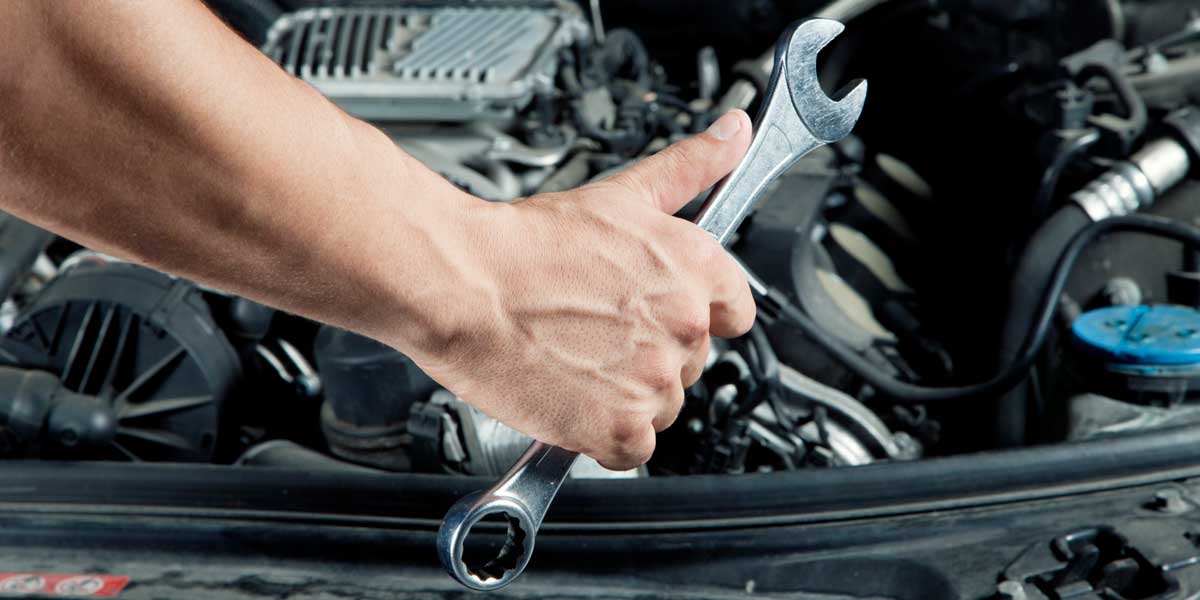All Categories
Featured
Accountable for synchronizing the rotation of the crankshaft and camshaft, the timing belt makes sure the engine's valves close and open at the appropriate times during the combustion process. If the timing belt falls short, it can result in extreme engine damages.
What Is a Timing Belt? The timing belt is a long, toothed rubber or composite belt that attaches the crankshaft to the camshaft(s) in an interior combustion engine. Its work is to maintain the engine's valves and pistons in sync, ensuring the engine runs effectively. The timing belt additionally regulates other important engine functions like the water pump and the power steering pump, relying on the car.
![]()
Without the appropriate timing, the engine's shutoffs and pistons can collide, resulting in expensive and extensive damages. Replacing the timing belt on timetable is one of the finest means to guarantee your engine operates at its finest and avoid pricey fixings.
Why Timing Belt Replacement Issues. Protecting Against Catastrophic Engine Damage: The most substantial danger of not replacing a used timing belt is engine failing. If the timing belt breaks while the engine is running, the camshaft and crankshaft can become misaligned, creating the pistons and shutoffs to collide. This can bring about curved valves, harmed pistons, or perhaps a destroyed engine. Changing the timing belt at the suggested periods is the very best method to stop such tragic damage, conserving you from the anxiety and high price of engine repair work or substitute.
![]()
Maintaining Engine Effectiveness: A timing belt that's in good condition ensures that all engine components work in perfect consistency. If the timing belt is worn or extended, it can trigger the engine to lose power, experience harsh idling, or battle to begin. By replacing the timing belt frequently, you can maintain your engine going for peak effectiveness, which aids maintain optimum gas economy and efficiency.
Avoiding Unforeseen Failures: A damaged timing belt can create your engine to stop abruptly, possibly leaving you stranded in the center of a trip. By changing your timing belt in a timely manner, you lessen the risk of unexpected malfunctions that could leave you in a inconvenient or unsafe scenario. Routine upkeep minimizes the opportunities of experiencing these sort of disturbances, aiding you remain on the road much longer without stressing over your engine stopping working.
Economical Maintenance: Timing belt replacement is a lot more economical than fixing or replacing an engine that's been harmed because of a timing belt failing. While the price of replacing the timing belt may vary depending on your vehicle and its location, it is much more budget friendly than the prices related to significant engine repair work or substitutes. Replacing your timing belt at the recommended periods can save you a significant quantity of cash over the long term by avoiding damage to your engine.
When Should You Replace Your Timing Belt? The timing belt doesn't last forever, and many makers recommend replacing it in between 60,000 and 100,000 miles. The precise timing depends on your vehicle's make, version, and driving conditions, so it's necessary to inspect your proprietor's handbook for particular assistance.
Indications that your timing belt might require interest consist of unusual engine noises (such as a high-pitched whining or ticking audio), problem starting the engine, or a reduction in engine performance. If you notice any of these signs, it's crucial to have the timing belt inspected by a specialist technician.
![]()
Verdict. The timing belt is a small but important element of your engine, and routine replacement is vital to preserving your automobile's performance and protecting against expensive damage. By remaining on top of timing belt maintenance, you'll ensure your engine runs efficiently, stay clear of unforeseen failures, and secure your vehicle from major repair work. Keep an eye on your automobile's suggested timing belt replacement schedule, and constantly speak with a trusted mechanic to keep your engine running efficiently for many years ahead.
What Is a Timing Belt? The timing belt is a long, toothed rubber or composite belt that attaches the crankshaft to the camshaft(s) in an interior combustion engine. Its work is to maintain the engine's valves and pistons in sync, ensuring the engine runs effectively. The timing belt additionally regulates other important engine functions like the water pump and the power steering pump, relying on the car.

Without the appropriate timing, the engine's shutoffs and pistons can collide, resulting in expensive and extensive damages. Replacing the timing belt on timetable is one of the finest means to guarantee your engine operates at its finest and avoid pricey fixings.
Why Timing Belt Replacement Issues. Protecting Against Catastrophic Engine Damage: The most substantial danger of not replacing a used timing belt is engine failing. If the timing belt breaks while the engine is running, the camshaft and crankshaft can become misaligned, creating the pistons and shutoffs to collide. This can bring about curved valves, harmed pistons, or perhaps a destroyed engine. Changing the timing belt at the suggested periods is the very best method to stop such tragic damage, conserving you from the anxiety and high price of engine repair work or substitute.

Maintaining Engine Effectiveness: A timing belt that's in good condition ensures that all engine components work in perfect consistency. If the timing belt is worn or extended, it can trigger the engine to lose power, experience harsh idling, or battle to begin. By replacing the timing belt frequently, you can maintain your engine going for peak effectiveness, which aids maintain optimum gas economy and efficiency.
Avoiding Unforeseen Failures: A damaged timing belt can create your engine to stop abruptly, possibly leaving you stranded in the center of a trip. By changing your timing belt in a timely manner, you lessen the risk of unexpected malfunctions that could leave you in a inconvenient or unsafe scenario. Routine upkeep minimizes the opportunities of experiencing these sort of disturbances, aiding you remain on the road much longer without stressing over your engine stopping working.
Economical Maintenance: Timing belt replacement is a lot more economical than fixing or replacing an engine that's been harmed because of a timing belt failing. While the price of replacing the timing belt may vary depending on your vehicle and its location, it is much more budget friendly than the prices related to significant engine repair work or substitutes. Replacing your timing belt at the recommended periods can save you a significant quantity of cash over the long term by avoiding damage to your engine.
When Should You Replace Your Timing Belt? The timing belt doesn't last forever, and many makers recommend replacing it in between 60,000 and 100,000 miles. The precise timing depends on your vehicle's make, version, and driving conditions, so it's necessary to inspect your proprietor's handbook for particular assistance.
Indications that your timing belt might require interest consist of unusual engine noises (such as a high-pitched whining or ticking audio), problem starting the engine, or a reduction in engine performance. If you notice any of these signs, it's crucial to have the timing belt inspected by a specialist technician.

Verdict. The timing belt is a small but important element of your engine, and routine replacement is vital to preserving your automobile's performance and protecting against expensive damage. By remaining on top of timing belt maintenance, you'll ensure your engine runs efficiently, stay clear of unforeseen failures, and secure your vehicle from major repair work. Keep an eye on your automobile's suggested timing belt replacement schedule, and constantly speak with a trusted mechanic to keep your engine running efficiently for many years ahead.
Latest Posts
Discover Exclusive Auto Repair Specials in Chicago at Montclare Auto Repair
Published May 27, 25
1 min read
Uncover Reduce Expenses on Car Maintenance with Montclare Auto Repair’s Limited-Time Deals
Published May 27, 25
1 min read
How Regular Vehicle Maintenance at Montclare Auto Repair Saves You Money
Published May 26, 25
1 min read
More
Latest Posts
Discover Exclusive Auto Repair Specials in Chicago at Montclare Auto Repair
Published May 27, 25
1 min read
Uncover Reduce Expenses on Car Maintenance with Montclare Auto Repair’s Limited-Time Deals
Published May 27, 25
1 min read
How Regular Vehicle Maintenance at Montclare Auto Repair Saves You Money
Published May 26, 25
1 min read